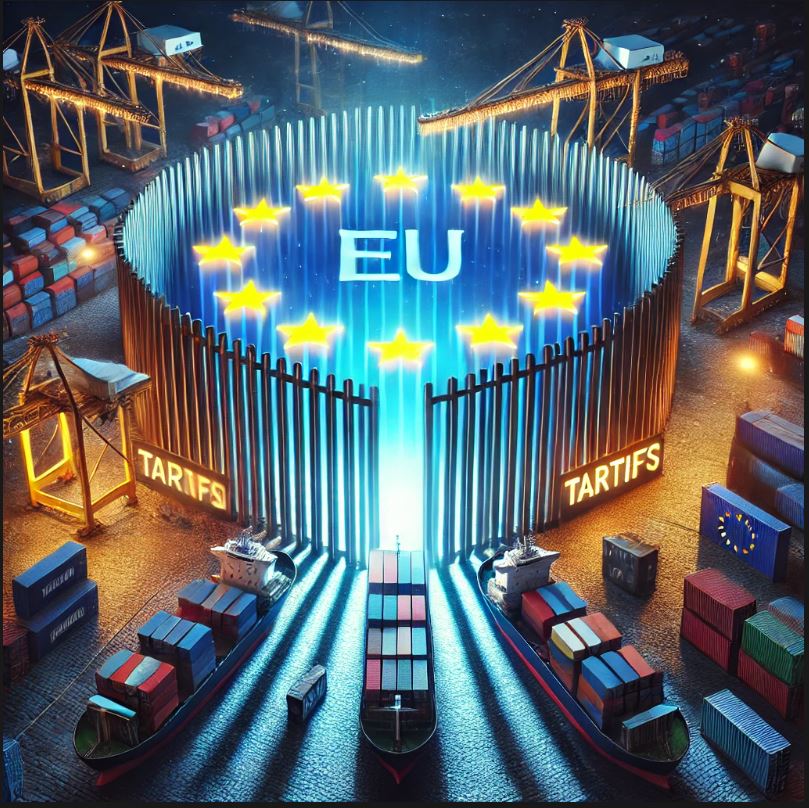In recent years, the European Union (EU) has intensified its enforcement of anti-dumping measures in an effort to protect domestic industries from unfair competition. While the paint industry has seen significant debate around titanium dioxide and related trade practices, the reality is that the EU enforces similar measures across many other industrial sectors.
However, this broad policy raises questions: does it truly protect European businesses, or does it ultimately lead Europe towards trade isolation, potentially harming its own economy?
Recent Anti-Dumping Measures
The EU has imposed anti-dumping measures on a wide range of products, primarily targeting imports from countries such as China, Russia, India, and Turkey. Some of the most notable examples include:
- Steel products: Tariffs on rolled steel products from China and Russia aim to prevent sales below production costs, protecting European steel manufacturers.
- Aluminum sheets and aluminum products: The EU has imposed additional tariffs on imports of flat-rolled aluminum products from China, arguing that low pricing harms domestic producers.
- Iron or steel fasteners: These measures affect critical components used in construction and industrial production.
- Aluminum radiators: Tariffs on imports from China were introduced to sustain the European industry.
- Solar panels: In the past, the EU imposed tariffs on photovoltaic panels from China to protect domestic manufacturing. Although these tariffs expired in 2018, the issue remains central to trade discussions.
- Truck and bus tires: The EU took action against imports from China, claiming that local companies were selling them below production cost.
- Optical fibers: Tariffs on imports from China aim to protect European technological manufacturing.
- Glass for solar applications: Allegations of unfair practices led to additional tariffs on imports from China.
These examples demonstrate that the EU follows a systematic approach to enforcing anti-dumping measures to protect European companies from low-cost imports deemed unfair.
The Benefits of Anti-Dumping Measures
Supporters of these measures argue that they:
- Protect the viability of European industries, ensuring jobs and domestic production.
- Prevent below-cost selling practices, which can lead to monopolies and reliance on low-quality imports.
- Ensure fair competition, encouraging high manufacturing standards in Europe.
However, anti-dumping measures are not without consequences.
The Negative Effects and the Risk of EU Isolation
Critics of these policies argue that excessive tariffs can lead to several issues:
- Higher costs for consumers and businesses: Protective tariffs mean higher costs for raw materials and products, burdening both European companies and consumers.
- Retaliation from other countries: China, Russia, and other trade partners have responded to such measures with tariffs on European exports, negatively impacting businesses reliant on international markets.
- Reduced trade and limited market access: Strict anti-dumping policies can hinder cooperation with international suppliers and weaken Europe’s trade relations.
- Delays in the green transition: Tariffs on products like solar panels or optical fibers can slow the development of renewable energy in Europe.
Towards a Balanced Approach
While the EU has legitimate reasons for enforcing anti-dumping measures, the continuous imposition of new tariffs raises concerns about its long-term strategy. Instead of relying solely on protectionism, the Union could:
- Increase investments in domestic industries to improve competitiveness without relying on protective measures.
- Negotiate trade agreements that ensure fair competition without restricting commerce.
- Develop price-balancing mechanisms to prevent unfair competition without excessively burdening imports.
Conclusion
The EU’s anti-dumping measures serve as a crucial tool for protecting European industries, but excessive use of these policies may lead to negative consequences. Rather than adopting a strategy that results in isolation, Europe should seek balanced solutions that promote both fair trade and the competitiveness of its businesses.

